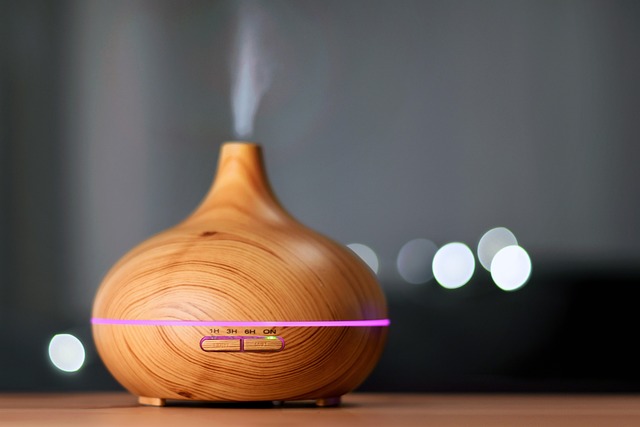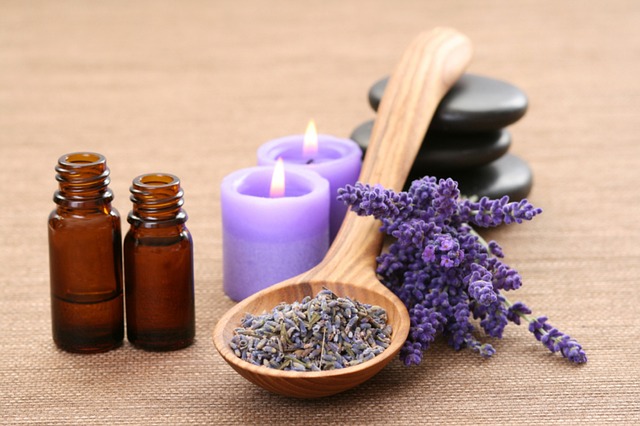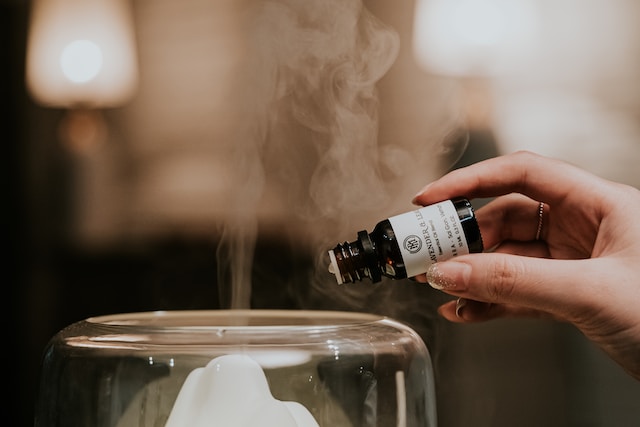Essential Oils For Sleep: Aromatherapy For Restful Nights And Better Dreams
There are some affiliate links below, but they are all products I highly recommend. For more info, view my disclosure here.
Do you struggle with getting a good night’s sleep? Are you tired of waking up feeling groggy and unrested?
Essential oils may be the help you’ve been searching for. Aromatherapy has been used for centuries to promote relaxation and improve sleep, and with the rise of natural remedies, it’s becoming more popular than ever.
The benefits of essential oils for sleep are backed by science. Studies have shown that inhaling certain scents can reduce anxiety, lower heart rate, and improve sleep quality.
By incorporating aromatherapy into your nighttime routine, you can create a peaceful environment that promotes restful nights and better dreams. Keep reading to learn more about the science behind essential oils for sleep, how to choose the right oils for your needs, and tips for incorporating aromatherapy into your routine.
The Science Behind Aromatherapy for Sleep
Discover why your sense of smell plays a crucial role in promoting deep relaxation and overall well-being, and how aromatherapy can help you achieve both.
Aromatherapy is a form of alternative medicine that uses essential oils to promote physical and psychological well-being. Essential oils are extracted from plants and contain the natural fragrance and properties of the plant.
When inhaled, the scent of the essential oils can stimulate the olfactory system, the part of the brain that controls our sense of smell, and trigger a calming response in the body.
Research has shown that certain essential oils can help promote better sleep. Lavender, for example, has been shown to have a calming effect on the nervous system and can help reduce anxiety and promote relaxation.
Chamomile, ylang-ylang, and bergamot are other essential oils that have been shown to help promote better sleep. By inhaling these scents before bedtime, you can help prepare your body and mind for a restful night’s sleep.
Another way to use essential oils for sleep is through topical application. Adding a few drops of essential oil to a carrier oil, such as coconut oil, and massaging it into your skin can help promote relaxation and improve sleep quality.
The scent of the essential oil is absorbed through the skin and can help calm the nervous system, reduce stress and anxiety, and promote deeper, more restful sleep.
Incorporating aromatherapy into your sleep routine can be a simple and effective way to improve your overall well-being and promote better sleep. Whether you choose to inhale the scent of essential oils or apply them topically, be sure to choose high-quality, pure essential oils.
Experiment with different scents to find the ones that work best for you and enjoy a restful night’s sleep.

Choosing the Right Essential Oils for Your Needs
When selecting the right oils, it’s important to consider your specific needs and preferences. Some essential oils are more calming and relaxing than others, so it’s important to choose those that will help you achieve the desired effects.
For example, lavender is known for its calming properties, while peppermint is more invigorating. If you’re looking to relax and wind down before bed, it’s best to opt for oils such as lavender, chamomile, and ylang-ylang.
Another important factor to consider when choosing essential oils for sleep is the method of application. Inhalation is one of the most effective ways to experience the benefits of aromatherapy, as the scent of the oils can directly affect the brain.
You can inhale the oils using a diffuser, by adding a few drops to a hot bath, or by placing a drop on a tissue and inhaling deeply. Alternatively, you can also apply the oils topically, by diluting them with a carrier oil and rubbing them onto your skin.
It’s also worth noting that not all essential oils are safe for everyone. If you have any allergies or sensitivities, it’s important to do your research and speak to a healthcare professional before using any new oils.
Additionally, some oils may interact with certain medications, so it’s important to check with your doctor if you’re taking any prescription drugs.
Overall, choosing the right essential oils for sleep can help you achieve a deeper, more restful night’s sleep. By considering your specific needs and preferences, opting for calming oils, and choosing a safe and effective method of application, you can experience the benefits of aromatherapy for yourself.

Methods of Application for Maximum Benefit
To get the most out of your chosen oils, you’ll want to know the best ways to apply them so you can feel the benefits throughout your day.
There are several methods of application for essential oils, and each one has its own unique benefits. One popular method is to use a diffuser, which disperses the oils into the air, allowing you to breathe in the aroma. This is a great way to enjoy the benefits of essential oils while you relax or sleep.
Another way to use essential oils is topically. By applying the oils directly to your skin, you can experience their benefits in a more targeted way. However, it’s important to dilute the oils with a carrier oil like coconut or jojoba oil to avoid skin irritation.
You can also add essential oils to your bath water for a relaxing soak, or mix them with a carrier oil for a soothing massage. If you’re on the go, you can use a personal inhaler or roll-on bottle to enjoy the benefits of essential oils wherever you are. Simply apply a few drops to the inhaler or roll-on bottle and carry it with you throughout the day.
You can also make a DIY room spray by combining essential oils with water and a natural emulsifier like witch hazel or alcohol.
In conclusion, there are many methods of application for essential oils, and each one offers its own unique benefits. Whether you choose to diffuse them, apply them topically, or use them in a room spray or personal inhaler, you can enjoy the restful and relaxing benefits of aromatherapy throughout your day. So why not give it a try and see how essential oils can improve your sleep and overall well-being?
Tips for Incorporating Aromatherapy into Your Nighttime Routine
If you want to wind down before bed and create a relaxing environment, try incorporating some aromatherapy into your nighttime routine. Here are some tips to help you get started:
First, choose the right essential oils. Lavender, chamomile, and ylang-ylang are all great options for promoting relaxation and sleep. You can use them individually or blend them together to create a personalized scent that works for you. Just make sure to choose high-quality, pure essential oils for maximum benefit.
Next, decide how you want to use the oils. You can add a few drops to a diffuser and let the scent fill the room, or you can mix them with a carrier oil and apply them to your skin before bed. You can also add a few drops to your bath or sprinkle them on your pillow to enhance your sleep environment.
One important thing to keep in mind is that aromatherapy is not a substitute for good sleep habits. Make sure you’re also practicing good sleep hygiene, such as sticking to a consistent sleep schedule and avoiding electronics before bed.
Aromatherapy can be a helpful tool to complement these habits and create a relaxing bedtime routine. Incorporating aromatherapy into your nighttime routine is a simple and effective way to promote better sleep and relaxation. With a little experimentation, you can find the perfect essential oils and methods of application that work for you.
Sweet dreams!
Other Natural Remedies for Better Sleep
Looking for more natural ways to improve your nightly routine and wake up feeling refreshed and rejuvenated? Essential oils are not the only natural remedy for better sleep. There are other options you can explore that work in tandem with aromatherapy to promote a restful night’s sleep.
One such option is herbal tea. Chamomile, lavender, and valerian root are all known for their calming properties and can help ease you into a peaceful slumber. Incorporating a cup of herbal tea into your nighttime routine can help you wind down and prepare your body for sleep.
Another natural remedy to consider is meditation. Taking a few minutes before bed to practice meditation or deep breathing can help calm your mind and reduce stress levels. This can make it easier for you to fall asleep and stay asleep throughout the night.
Lastly, exercise is a great way to promote better sleep. Regular physical activity can help release tension and reduce stress, leading to improved sleep quality. However, it’s important to note that exercising too close to bedtime can have the opposite effect, so aim to finish your workout at least a few hours before you plan to go to bed.
Incorporating natural remedies such as herbal tea, meditation, and exercise can complement the use of essential oils in your nighttime routine. By experimenting with different remedies and finding what works best for you, you can improve the quality of your sleep and wake up feeling more rested and refreshed.
Using essential oils for sleep is a natural and effective way to promote restful nights and better dreams.
By understanding the science behind aromatherapy and choosing the right oils for your needs, you can create a customized nighttime routine that helps you drift off to sleep peacefully.
There are many methods of application for maximum benefit, and incorporating aromatherapy into your nighttime routine is easy with a few simple tips.
And if essential oils aren’t quite your thing, there are plenty of other natural remedies for better sleep that you can try.
Sweet dreams!





